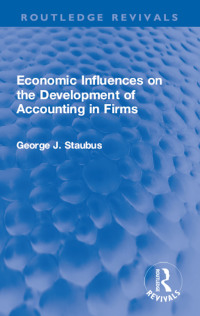Question
Problem 8-38 (LO. 2, 3, 9) Lori, who is single, purchased 5-year class property for $200,000 and 7-year class property for $420,000 on May 20,
Problem 8-38 (LO. 2, 3, 9)
Lori, who is single, purchased 5-year class property for $200,000 and 7-year class property for $420,000 on May 20, 2020. Lori expects the taxable income derived from her business (before considering any amount expensed under 179) to be about $550,000. Lori has determined that she should elect immediate 179 expensing in the amount of $520,000, but she doesn't know which asset she should completely expense under 179. She does not claim any available additional first-year depreciation.
Click here to access Exhibit 8.1 and the depreciation table to use for this problem.
If an amount is zero, enter "0".
a. Determine Lori's total cost recovery deduction if the 179 expense is first taken with respect to the 5-year class asset.
| |||||||||||||||||||||
b. Determine Lori's total cost recovery deduction if the 179 expense is first taken with respect to the 7-year class asset.
| |||||||||||||||||||||
c. What is your advice to Lori?
If 179 expense is first allocated to the the cost recovery deduction for the year would be $ larger.
d. Determine the present value of the tax savings from the cost recovery deductions for both assets, assuming that Lori is in the 24% marginal tax state and Federal income bracket and that she elects 179 for the 7-year asset. Assume MACRS depreciation and a 6% discount rate with the following present value factors:
| Year | Factor | Year | Factor |
| 2020 | 1.000 | 2024 | 0.7921 |
| 2021 | 0.9434 | 2025 | 0.7473 |
| 2022 | 0.8900 | 2026 | 0.7050 |
| 2023 | 0.8396 | 2027 | 0.6651 |
Round each present value computation to the nearest dollar.
The present value of the tax savings from the cost recovery deductions for both assets $.
e. Assume the same facts as in part (d), except that Lori decides not to use 179 on either asset. Determine the present value of the tax savings under this choice. In addition, determine which option Lori should choose.
Round each present value computation to the nearest dollar.
The present value of the tax savings under this choice is $.
Lori should elect to expense the asset.
Step by Step Solution
There are 3 Steps involved in it
Step: 1

Get Instant Access to Expert-Tailored Solutions
See step-by-step solutions with expert insights and AI powered tools for academic success
Step: 2

Step: 3

Ace Your Homework with AI
Get the answers you need in no time with our AI-driven, step-by-step assistance
Get Started


